What Causes Bruising After A Blood Draw
What Causes Bruising After A Blood Draw - Web diseases & conditions / bruises (ecchymosis) “ecchymosis” is the medical term for bruises. Web common causes of excessive bleeding include liver disease, low platelet count, and certain medicines. Your doctor might call this kind of bruise a hematoma. Web causes of bruising and bleeding. Web some of the blood will come to the surface of your skin and form a bruise. How long do bruises last? Web most bruises form when small blood vessels (capillaries) near the skin's surface are broken by the impact of a blow or injury — often on the arms or legs. • discolouration of the hand Less often, you inherited a bleeding problem from your parents. Some people may bruise after a blood draw more easily. A large bruise can take up to three weeks to fully heal. They’re caused by a blood vessel break. “big bruises last longer than smaller ones,” says dr. Web when it comes to the day of the blood collection, stay hydrated, stay warm and try to stay as calm as possible (try taking some deep breaths). If the thought of. Hematomas occur when larger blood vessels burst, resulting in pooled blood. “big bruises last longer than smaller ones,” says dr. There are often patients with similar. Small and hard to find veins. Lack of enough pressure after the blood draw. Eventually the body reabsorbs the blood, and the mark disappears. Web causes of bruising and bleeding. A large bruise can take up to three weeks to fully heal. Bruising or bleeding after an injury is normal (see also how blood clots ). When this happens, blood leaks out of the vessels and initially appears as a dark mark. A collapsed vein is a blown vein that has caved in, which means that blood can no longer flow freely through that vein. However, some people have disorders that cause them to bruise or bleed too easily. A large bruise can take up to three weeks to fully heal. Ecchymosis looks like a bruise, but it’s not always related to. Sprain one of your joints, like your ankle. They occur when the small blood vessels, or capillaries, are damaged due to injury or strain. Web bruises usually happen when a physical trauma causes blood to leak into surrounding tissues. Your doctor might call this kind of bruise a hematoma. “big bruises last longer than smaller ones,” says dr. A bruise is more likely to show. That's a swollen area filled. There’s no standard lifespan for bruises. Blown veins are different than collapsed veins. Sometimes people bleed without any obvious triggering event or injury. Web common causes of excessive bleeding include liver disease, low platelet count, and certain medicines. Eventually the body reabsorbs the blood, and the mark disappears. A blood clot is a collection of blood within a vessel. When this happens, blood leaks out of the vessels and initially appears as a dark mark. The who (world health organization) issues the recommendation. However, some people have disorders that cause them to bruise or bleed too easily. • discolouration of the hand Bruising after drawing blood may occur for various reasons, including liver disease, certain medications, and vitamin deficiencies. Less often, you inherited a bleeding problem from your parents. A bruise may appear after a blood draw if small blood vessels get damaged. A bruise is more likely to show. Now, we wanted to learn more about how this could happen and what you should. Bruising can also develop after the rupture of the pierced vein, in which case, a small hole opens up and blood starts leaking through it. This damage leads to blood leaking into the surrounding tissues, which causes discoloration. Ecchymosis looks like a bruise, but it’s not always related to an injury. Web when it comes to the day of the blood collection, stay hydrated, stay warm and try to stay as calm as possible (try taking some deep breaths). Bruises look like a mark on your skin that’s black and blue or red to purple. It depends on. While a blown vein isn’t serious, it needs about 10 to 12 days to heal before your provider can use it again. Blown veins are different than collapsed veins. A collapsed vein is a blown vein that has caved in, which means that blood can no longer flow freely through that vein. Bruising after drawing blood may occur for various reasons, including liver disease, certain medications, and vitamin deficiencies. Web in most people, bruising following blood drawing will quickly disappear within a few days. Web medical conditions such as hemophilia, cushing syndrome, thrombocytopenia, von willebrand disease, and kidney or liver disease. What can i do to help the healing? Applying an ice pack or a bag of frozen peas wrapped in a thin towel helps constrict blood vessels and reduce inflammation. Bruising or bleeding after an injury is normal (see also how blood clots ). Web bruising after a blood draw is a common occurrence, and while bruising is normal, some patients tend to bruise more easily than others. Sometimes people bleed without any obvious triggering event or injury. Web when it comes to the day of the blood collection, stay hydrated, stay warm and try to stay as calm as possible (try taking some deep breaths). These form when blood pools under your skin. It may take a few weeks for the bruise to fade all the way. Small and hard to find veins. The phlebotomist assigned to perform your blood draw you will ask you several questions before they get started, such as your date of birth and full name.
Big Bruise From Blood Draw Bleeding And Bruising In Patients With
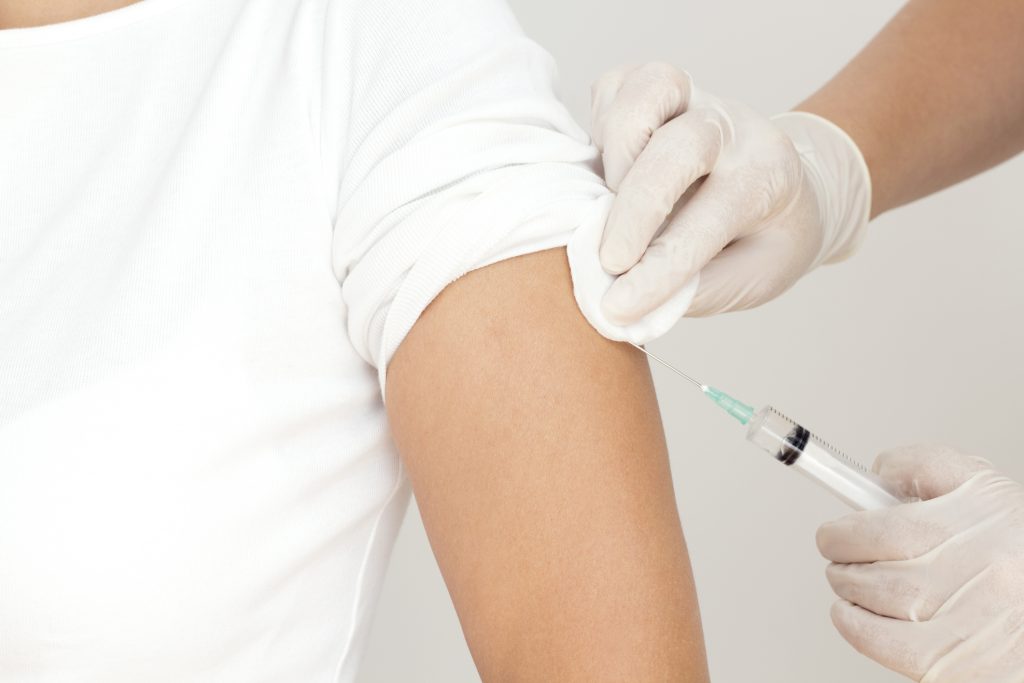
Bruising after a blood draw when do symptoms turn into alarm signals
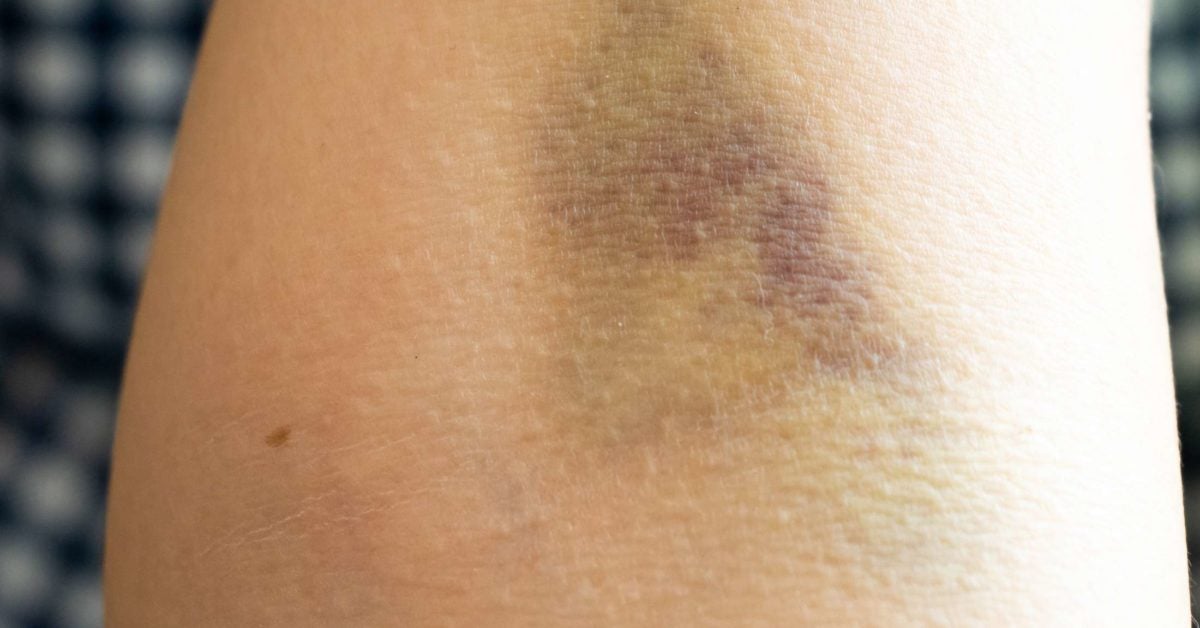
Bruising after a blood draw What does it mean?
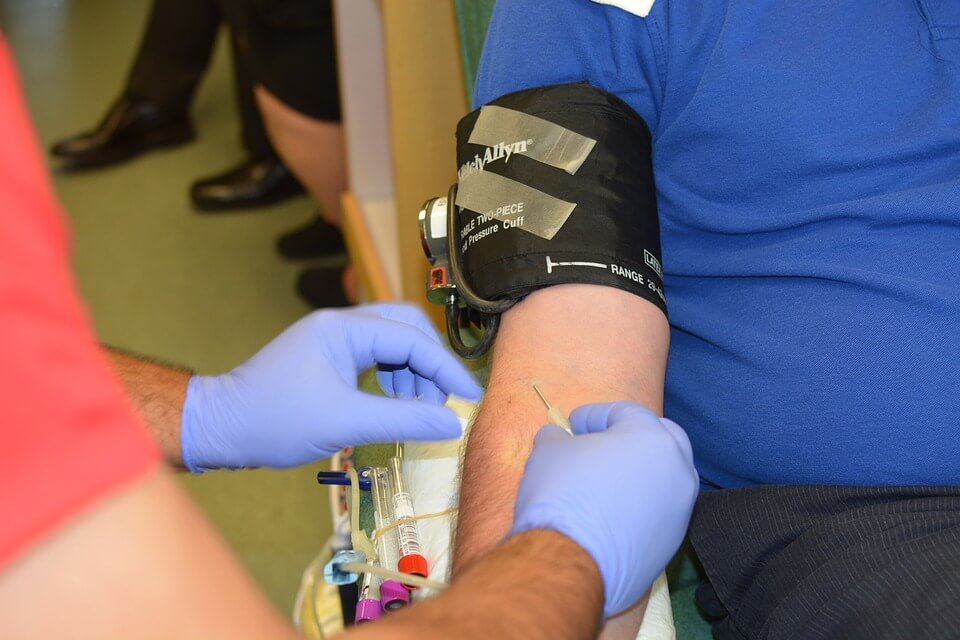
What Causes Bruising After a Blood Draw? Preventing Bruising During
Why does bruising occur after blood draw? How should I avoid it?

Bruising after a blood draw What does it mean?
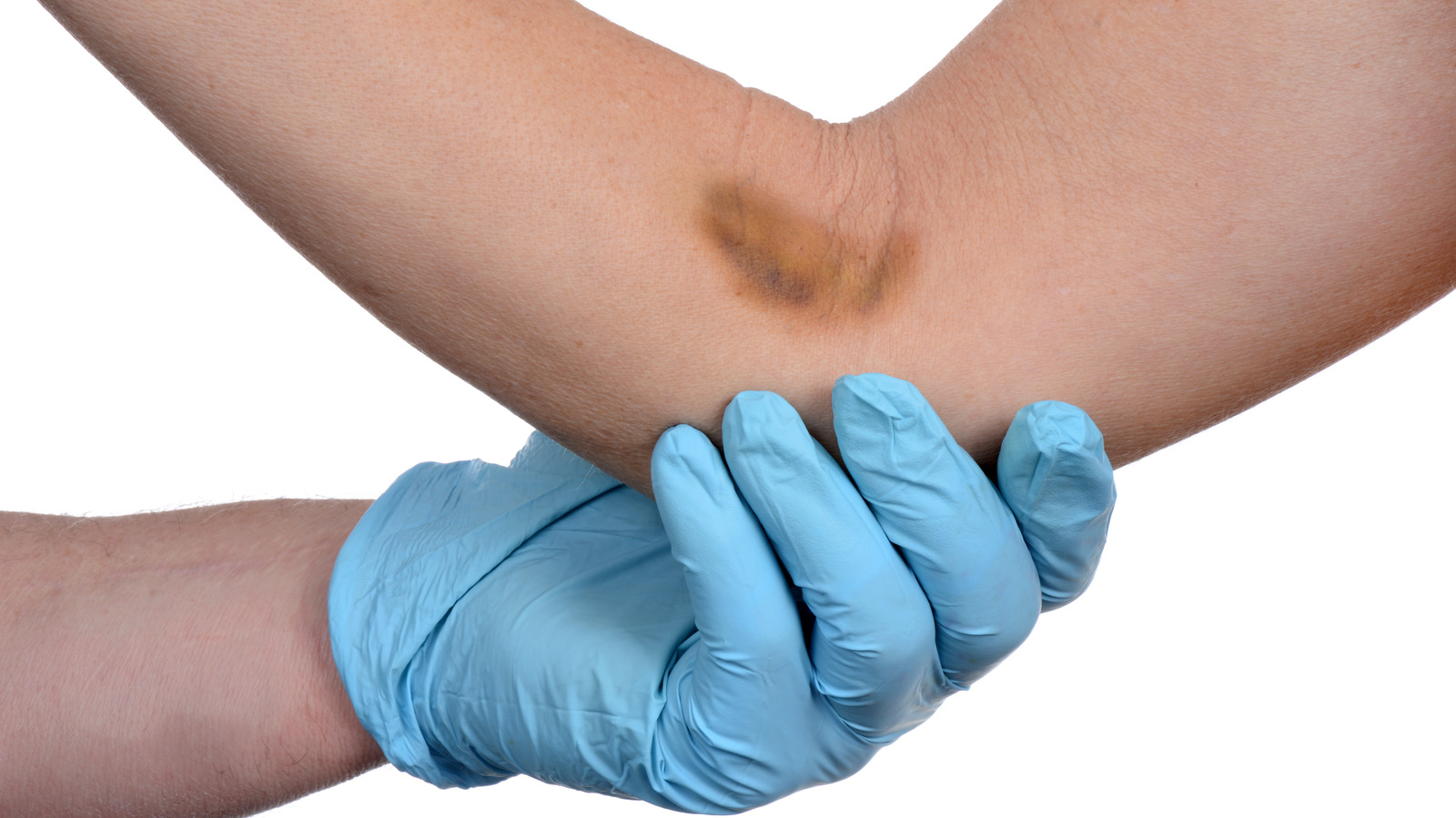
Is It Normal To Bruise After Getting Blood Drawn?

Bruise Types, Symptoms, Causes, Prevention & Treatment
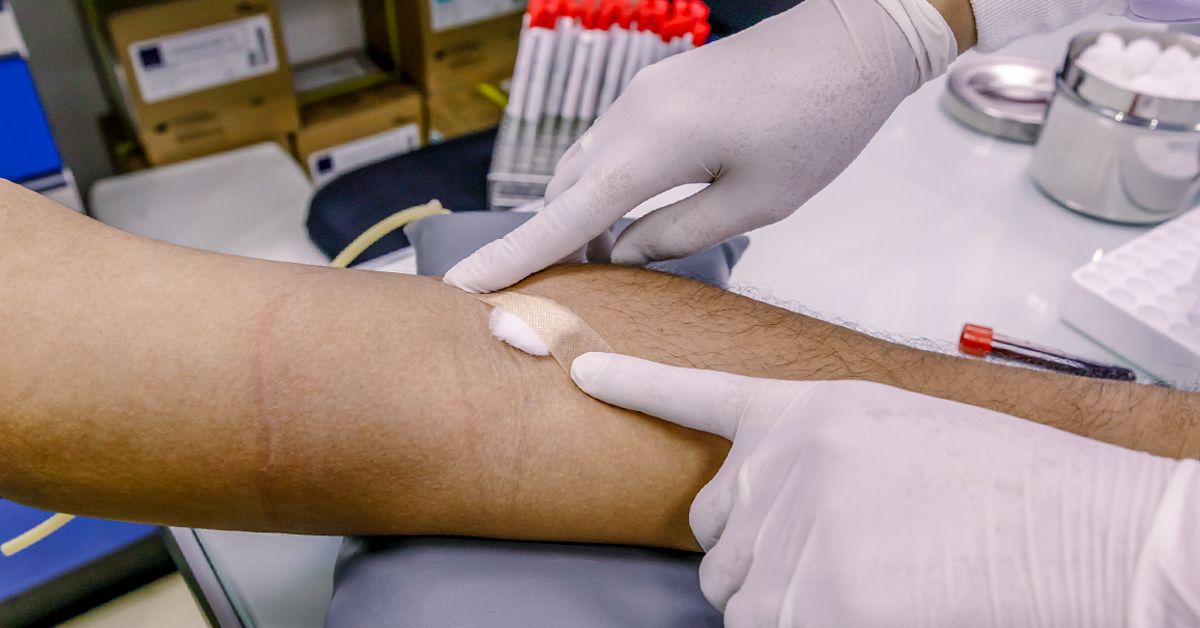
Bruising After Blood Draw Why, What to Do, and Prevention

Bruising after a blood draw What to know South Florida Reporter
A Bruise Is More Likely To Show.
Web Diseases & Conditions / Bruises (Ecchymosis) “Ecchymosis” Is The Medical Term For Bruises.
Your Doctor Might Call This Kind Of Bruise A Hematoma.
Bruises Change Color As They Heal And Most Don’t Need Treatment.
Related Post:
